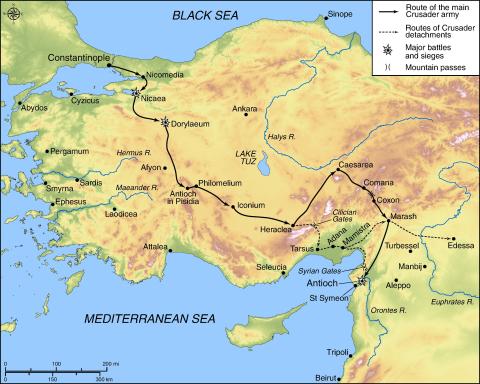The Road to Antioch
[4.11.7] Exeuntēs igitur dē exsecrātā montānā, pervēnimus ad cīvitātem quae vocātur Marasim. Cultōrēs vērō illīus cīvitātis exiērunt obviam nōbīs laetantēs, et dēferentēs maximum mercātum, illīcque habuimus omnem cōpiam, expectandō dōnec venīret domnus Boamundus. Vēnērunt itaque nostrī mīlitēs in vallem, in quā rēgālis cīvitās Antiochīa sita est, quae est caput tōtīus Syriae, quamque Dominus Iēsus Chrīstus trādidit Beātō Petrō apostolōrum prīncipī, quātinus eam ad cultum sānctae fideī revocāret; quī vīvit et rēgnat cum Deō Patre in ūnitāte Spīritūs Sānctī Deus, per omnia saecula saeculōrum. Āmēn.
notes
media
Maps and Images Ref
Text Read Aloud

